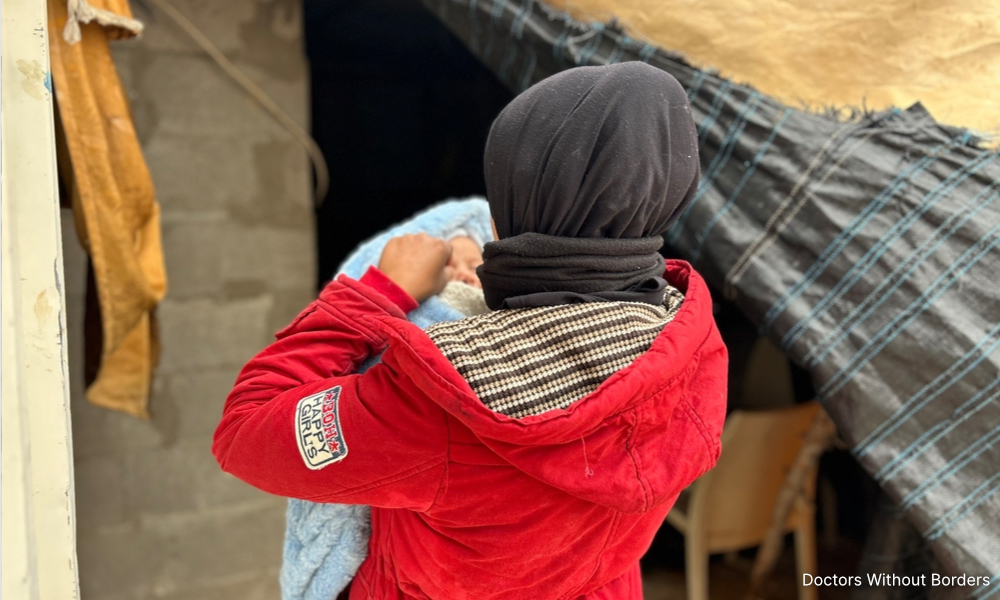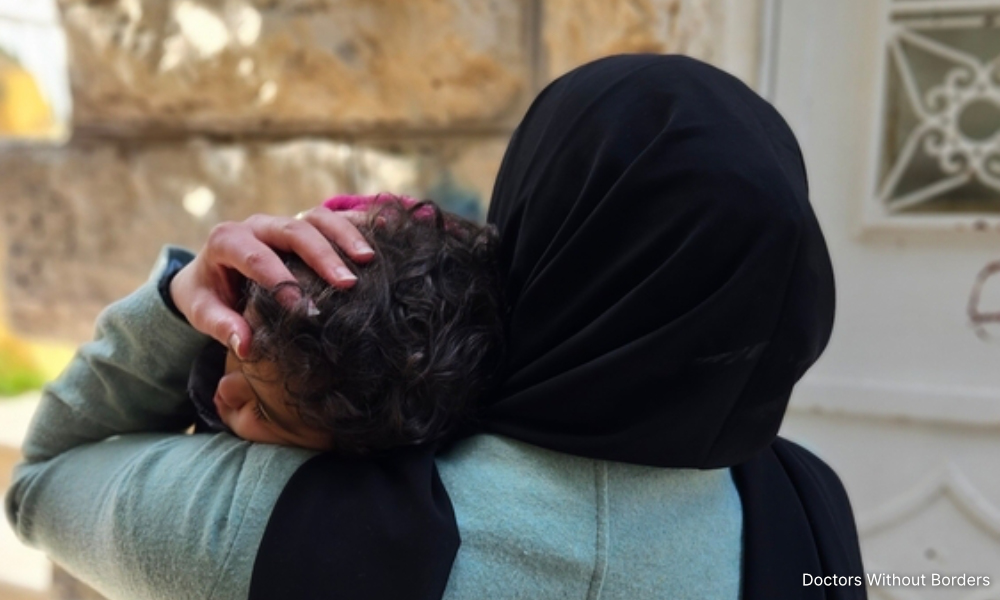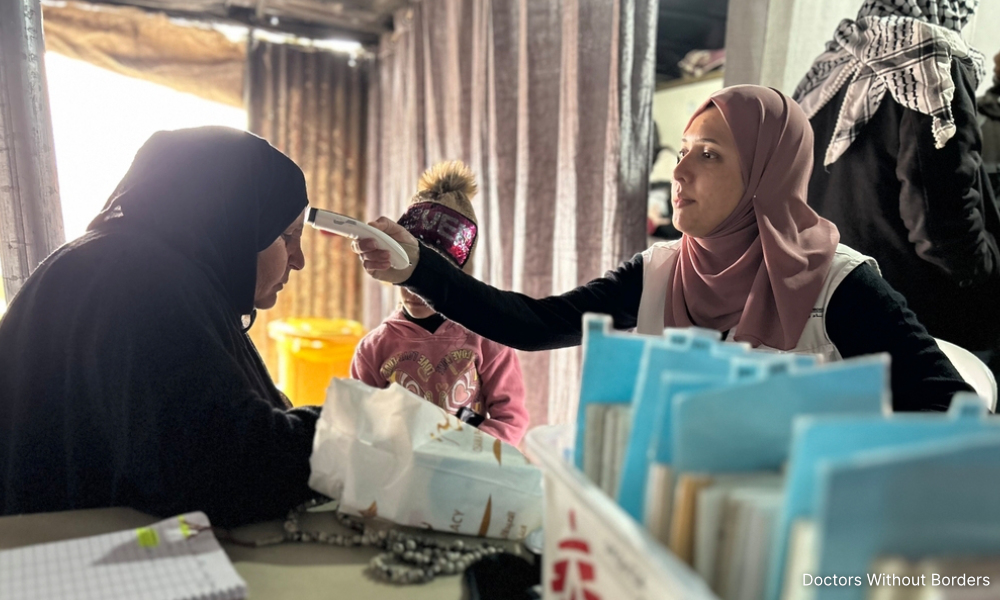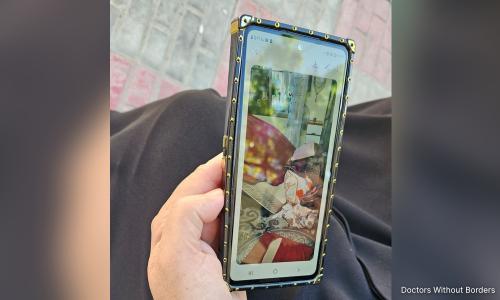COMMENT | Constant fear for Palestinians in Hebron as violence surges
COMMENT | Hebron, in the West Bank, serves as a distressing example of Palestinians suffering under Israeli occupation, marked by intimidation, movement restrictions, evictions, demolitions, and continuous Israeli military and settler presence.
The Israel-Gaza war has worsened conditions, with at least 198 Palestinian households displaced since early October due to settler violence and access constraints.
Doctors Without Borders highlights the severe impact on healthcare accessibility, noting a 78 percent drop in medical consultations and difficulties faced by healthcare workers due to movement restrictions and violence.
In Hebron's Israeli-controlled H2 area, Palestinians endure severe and unpredictable entry and exit constraints, severely affecting daily life. Movement restrictions have intensified following the Israel-Gaza war, with checkpoints open only briefly, trapping residents indoors for days.
Doctors Without Borders’ response includes expanding mobile clinics to ten locations in and around Hebron and Masafer Yatta, offering medical and mental health services, and adapting to the increased medical access challenges.
Access to healthcare has become dangerous due to increased checkpoints and curfews, impacting patients and medical staff. In H2, the only Palestinian Health Ministry medical facility has been inaccessible to its staff since October, leaving residents without essential healthcare.
Doctors Without Borders remains the sole operating organisation in this area, addressing the acute need for medical services.
In Masafer Yatta, a remote desert area, Israeli pressure and restrictions have intensified, severely limiting access to healthcare. Patients, often unable to see a doctor for extended periods, face respiratory infections, chronic illnesses, and costly medication without health insurance.
Doctors Without Borders addresses these gaps by providing essential healthcare services in this challenging environment.
The situation in Hebron and surrounding areas is not just physically taxing but also mentally damaging. Doctors Without Borders' mental health services reveal a deterioration in mental health, treating not only post-traumatic stress disorders but ongoing trauma.
Continuous exposure to violence affects all, including infants and toddlers, who show symptoms of anxiety, highlighting the profound impact of the occupation on the psychological well-being of Palestinians.
Our patients in Hebron share their pains and fears:
‘What can we do?’
Ahmed* was born on Sept 24, only two weeks before the Gaza-Israel war erupted. He was born on the other side of the Occupied Palestinian Territories, in the West Bank, and yet, his life has changed since the start of the war.

Holding him closely to her chest, her mom Nesma*, says:
“A few days ago, on an early morning, (Israeli) soldiers came to our house with a bulldozer and destroyed it. It happened fast, we barely took things with us, only what we could grab with our hands on the way out. There were 17* people living there – and now we have nowhere to go,” says Nesma.
A neighbour landed them a few square meters of his property where the family could put up a shelter: a space made of tarpaulins and bricks, with few hours of electricity and no running water. They sleep on a mat on the floor, without heating, hence having to use all their clothes and blankets to survive the cold nights.
“The way we live is difficult, we struggle to find enough food, so I don’t produce enough milk to breastfeed him properly. I have to give him goat milk (medically considered to have potentially a harmful effect on a newborn's health).”
Nesma’s family are breeders, with cattle of a hundred sheep. However, since their land was confiscated, they cannot breed them properly.
“We are confined in this small space in which we cannot move, or they [the soldiers] will come and attack us. So, the sheep are stuck here. We need to find a different way to find food and water for them,” says Nesma.
Like an estimated 140,000 Palestinians from the West Bank, some of Nesma’s family members had their work permits, allowing them to work in Israel, cancelled on Oct 7.
“They have been working for years in construction. Since they lost their permits, they cannot work and cannot move. We are just all stuck here. But what can we do? We have no plans. If we build a home, it will be destroyed. If we put a tent, it will be taken away,” she says.
‘No more limitations’ since Oct 7
Aliyah, 25, was born and grew up in the old city of Hebron. In 2015, the Israeli army deemed her neighbourhood as a “closed military zone”.
Since then, only registered residents have been allowed to enter the area. When she got married, she left and is now living outside the area while the rest of her family remained there.

“I cannot compare the level of intensity of today with before (the war). It has continuously gotten worse, but Oct 7 marked a turning point. The first weeks following that date were terrible. Restrictions of movements have increased and gotten worse.
“The level of violence increased as if the (Israeli) settlers and the army had no more limitations. Hence, following Oct 7, people were thinking that the same situation in Gaza would come soon to the West Bank.
“I am pregnant and for example, before the war, I could negotiate at the (Israeli) checkpoint to not go through the x-ray machine for the safety of my baby. This morning, they asked me to pass through the machine three times and they would not listen about my condition.
“Women here need to adapt their clothing to pass the checkpoints, cause if there is any metallic thing in the bra stays or in the jean pocket, you will ring and go through a long screening,” says Aliyah.
Tel Rumeida, Hebron’s old city area that Aliyah mentions, is one of the most restricted areas within the West Bank. In the past months, Israeli forces allowed movements in and out only for several hours for a few days a week.
At times, Palestinians are not permitted to go out of their homes/leave the area for four days at a time - not even to bring out the trash or open their windows.
“At the beginning of the war, most of the essential goods were not accessible. Today, they only have a few hours a day to go to the shop,” says Aliyah.
“People live in constant fear. (Israeli) settlers and soldiers will come at night, knock, and yell at their doors. This has always happened but since the war, these intrusions are almost daily. Can you imagine the level of stress and insecurity this creates?
“Children are terrified and suffer from mental health symptoms such as bedwetting, persistent nightmares, behavioural changes, and isolation.
“I am a mum, and soon will have a second child. The moment I became a mother, my perspectives changed, and my anxiety level only continued to increase. It breaks my heart to raise children in this environment.
“You know what my daughter told me the other day? ‘Mom I am so scared’ - and she is only two years old,” said Aliyah.
Demolition orders on own land
Fatima* came with her granddaughter to the mobile clinic set up by Doctors Without Borders in Umm Qussa gathering in Masafer Yatta, to bring healthcare closer to the communities. She was one of the first ones to arrive that day. It is her first medical consultation for the past nine months.

Fatima lost her husband nine months ago. Since then, she has barely found the energy to leave her house, even when she needs to see a doctor. She suffers from hypertension, and diabetes and has muscle atrophy from a previous traumatic injury which reduced her mobility.
Hence, coming to a medical facility is itself a challenge for Fatima. Sometimes, Doctors Without Borders arranges a home visit to bring monthly medication but today Fatima managed to come and is happy to bring her granddaughter to ensure she gets a medical examination too.
“People in this area have been here for a long time, and Israeli settlers and army are kicking them out one by one, by putting pressure on them: restricting access, cutting water pipes, destroying their houses, and so on. But they have nowhere to go.
“In this area, there are many breeders. But with the pressure of the Israeli army and settlers, they are stuck with their cattle in a very limited space. Although the lands are theirs, they receive destruction warnings, they receive court orders to forbid them to build,” she concludes.
*Names of the people interviewed have been changed and other facts that might help identify them have been removed for safety measures.
DOCTORS WITHOUT BORDERS has been present in the West Bank since 1988, with current activities in Hebron, Nablus, and Jenin. Our teams run mental health programmes with outreach activities, provide medical services and basic healthcare via mobile clinics, as well as capacity-building activities, offering training to health facilities and hospitals for mass-casualty plans, emergency response and patient triage.
In addition to the expansion of medical activities since Oct 7, our team increased health promotion activities in the community, and the distribution of relief items, hygiene kits and food parcels to internally displaced Gazans, and West Bank residents affected by violence and forcible displacement.
Our lifesaving work, however, is only possible through the generous support of our donors, which allows Doctors Without Borders. Help us provide medical assistance to patients in need by donating today.
The views expressed here are those of the author/contributor and do not necessarily represent the views of Malaysiakini.
RM12.50 / month
- Unlimited access to award-winning journalism
- Comment and share your opinions on all our articles
- Gift interesting stories to your friends
- Tax deductable
